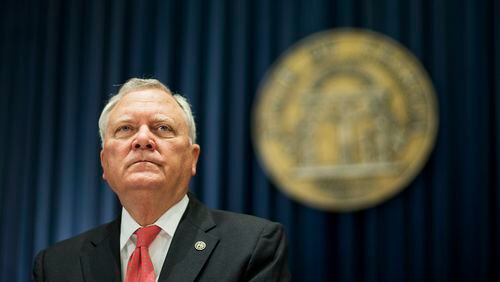Today Gov. Nathan Deal is expected to sign a historic piece of legislation: HB 170, the giant transportation funding bill that will pour about a billion dollars into fixing our state's aging network of roads and bridges.
He'll accomplish the task with the stroke of a pen. If only fixing metro Atlanta's traffic woes were so easy.
Surely, a billion dollar investment is sorely needed. But unfortunately, a billion dollars doesn't go as far as it used to.
Before the 2015 legislative session even started, state transportation officials warned lawmakers that Georgia was facing a $74 billion transportation funding gap over the next 20 years to keep pace with continued population growth.
To meet existing maintenance needs, a billion to $1.5 billion a year of additional funding was needed. To expand transit, widen interstates and build new interchanges would cost nearly double. And to pay for the full universe of transportation needs, including passenger rail, would cost $4 to $5 billion a year.
So what will a billion dollars buy?
It will help bring up to snuff on a whole lot of potholed state routes and highways, and buttress hundreds of aging bridges, according to Georgia Department of Transportation Commissioner Russell McMurry. And depending on how state transportation planners juggle federal and state project funding in the future, it might be enough to cover some other badly needed road improvements.
But the sad truth is, it's not enough money to make changes that are truly transformative for the state. For that, we'll have to look to future leaders.
About the Author






